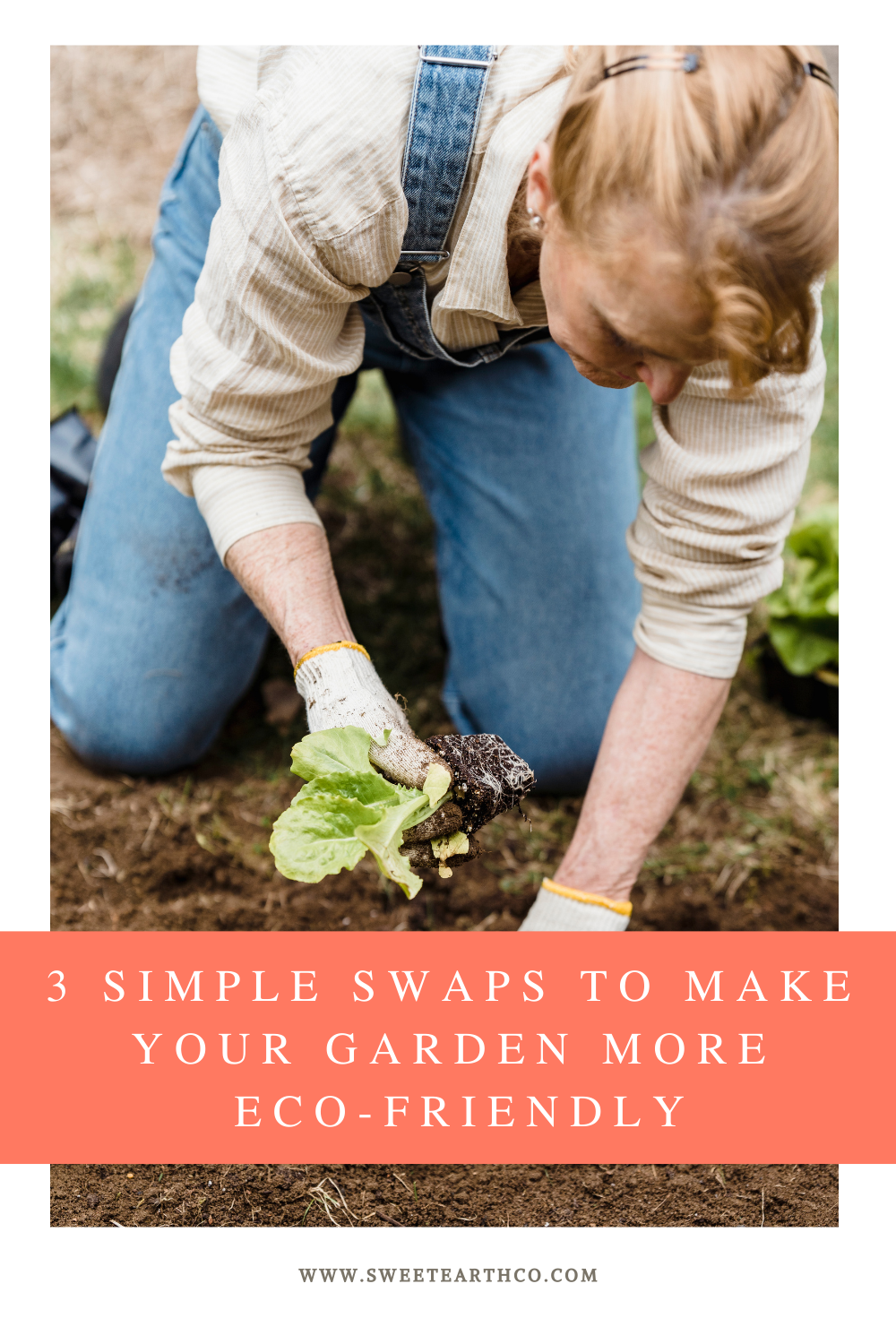3 Simple Swaps to Make Your Garden More Eco-Friendly
A garden is not only a way to enjoy time outdoors and grow your favorite flowers and herbs, but also a way to make a positive impact on the environment from your own backyard — or container on the porch!
I want to share 3 simple garden swaps you can make this season to up the sustainability factor of your garden. Let’s dive in.
#1 — Add Native & Pollinator-Friendly Plants
Native plants are simply varieties of plant native to your area. Because they’re native to your area, they thrive in the local conditions and require less water and fertilizer usage to thrive.
Not only that, but native plants are four times more likely to attract pollinators to your garden than non-native varieties.
Attracting pollinators to your garden improves the overall biodiversity and strengthens the ecosystem within your garden.
To learn more about which plants attract which pollinators, check out our blog post where we go more in-depth on the topic.
#2 — Utilize Compost
Compost is one of the best ways to improve your soil conditions, and healthy soil is the foundation of a healthy garden. Adding compost to our soil improves the soil’s structure and texture, and helps with aeration, moisture retention and drainage. It also balance pH levels making nutrients available for soil biology.
If you want to learn how to make your own compost, check out our blog post here.
#3 — Update Your Water Schedule
Finally, ensure you’re being water-wise by updating your watering schedule — and watering the correct areas. Lawns and gardens are usually watered too often, and sprinklers often end up watering driveways and walkways as well.
Water your gardens and lawns slowly and deeply, early in the morning (when it’s a cooler time for the plants to soak up the water). This will allow the water to sink deep into the roots, reducing the days you need to water.
You can also harvest rainwater and use high-efficiency nozzles and rain sensors to water wisely.
If you plant native plants mentioned above, once they’re established, they require minimal additional watering beyond natural rainfall!
Take this to the next level! Join our Eco-Friendly Garden Challenge. In just one week, your garden will be on its way to being an outdoor oasis for you and for pollinators — all while benefiting the earth!




